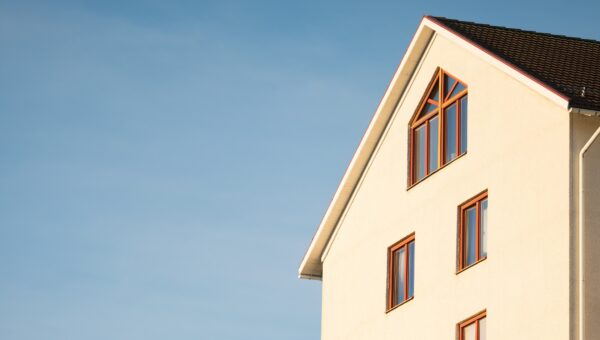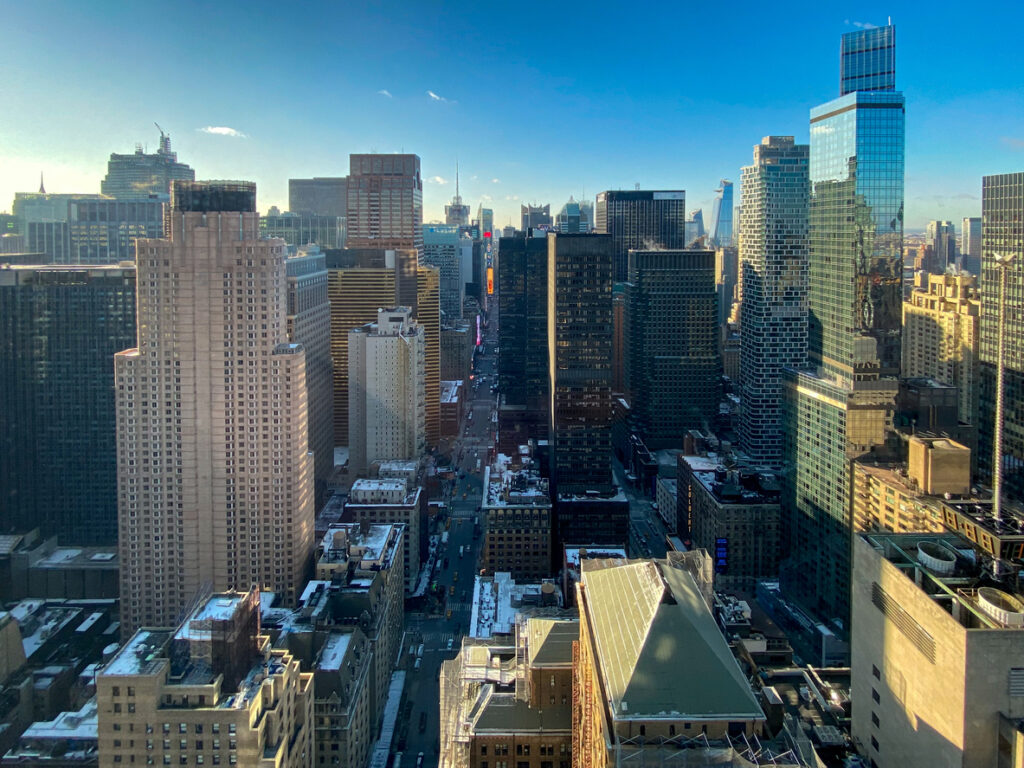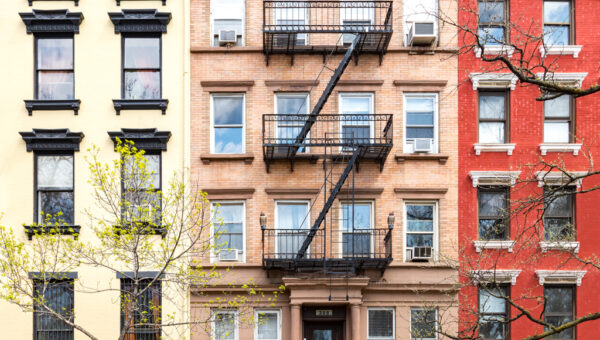
Hotel Special Permit Legislation Moves to Public Review Despite Dire Warnings for Tourism and Hotel Industries

New York City’s hotel industry has been particularly hard-hit by the pandemic. In 2019 it employed approximately 306,000 workers, but today employment is down 80% and many hotels are unlikely to reopen. Instead of focusing on recovery, the City is instead advancing a zoning proposal that would limit future growth in the hotel and tourist sectors by eliminating the ability to develop as-of-right hotels.
On May 3, the Department of City Planning began the public review process for the zoning text amendment to eliminate all as-of-right hotel development in the city, despite projections that this zoning change would result in a 47,000-hotel room shortfall with significant adverse impacts on the tourism and hotel industry. The City’s own documents project an annual economic loss of $5.3 billion by 2035, with 19,000 fewer workers in the hotel sector and a loss of $1.3 billion per year in direct wages. By 2035 the city will face an expected shortage of 47,000 hotel rooms if the special permit proposal is implemented. The tourism industry, which encompasses restaurants, retail, arts and entertainment would also feel the effects of the room shortfall, with visitors choosing to go elsewhere or stay outside the City.
While today hotels can be built as of right in most commercial districts across the city, the new rules will require every new hotel project to undergo the costly and time-consuming public review process — making it the only major type of development (other than facilities such as arenas, stadiums and large parking garages) receiving this level of scrutiny. As disclosed in the material accompanying the proposed zoning text amendment, few hotel developments will actually choose to go this route.
The proposed zoning – which has been referred to Community Boards and the Borough Presidents for a 60-day review – would mandate a site-specific, full ULURP review for every new hotel to be built in the City. It is the City’s goal to adopt the new text this fall before the end of Mayor de Blasio’s term.
Background
In 2018, the City adopted a hotel special permit for M1 manufacturing zones while eliminating as-of-right hotels in these districts. This amendment was intended to reduce land use conflicts between hotels and industrial uses, while recognizing that the tourism industry is essential to the City, generating new jobs and helping to support a large number of businesses and cultural institutions. This amendment was crafted to recognize the importance of continuing as-of-right hotel development in commercial districts throughout the city, as well as special mixed-use (MX) districts. Since the text amendment was adopted, no hotel special permits in M1 districts have been processed.
Proposed Citywide Text Amendment
Under the Department’s proposal, there would be no such thing as a new as-of-right hotel anywhere in the five boroughs, including such areas as Lower Manhattan, the Theater District, Hudson Yards, Harlem, Downtown Brooklyn, Jamaica, Flushing the Bronx and Staten Island. Existing hotels seeking to enlarge by more than 20 percent would also be required to go through the special permit process. According to the application material, the intent of the special permit is to create a more consistent framework for new hotels and to address potential conflicts with nearby uses. If adopted, any new hotel would be subject to the City’s full environmental and land use review procedure (ULURP).
Grandfathering/Vesting Rules
To ameliorate some of the regulations’ more severe impacts, the proposal incorporates special vesting and grandfathering provisions to allow certain projects to continue. These provisions are not entirely clear and Capalino can help you navigate them over the coming months, and assist in determining the impact of these proposed rules on existing hotels, and other hotel projects previously approved or in the development pipeline. It appears that certain hotel projects approved prior to 2018 would not be able to proceed despite best efforts to advance them.
- Existing hotels could enlarge as-of-right by up to 20 percent
- Vacant hotels would be allowed six years to be reactivated as hotels without having to go through the special permit process
- Former hotels, which may have been converted to other uses, such as dormitories, would have six years to convert back to hotels without going through the special permit process
- Hotel projects that had filed plans at DOB on or before May 3, would be allowed six years to complete if they receive zoning approvals at DOB by the date of adoption. If a hotel project was filed at DOB prior to 2018, it must also have a foundation permit by the time of adoption.
- Hotel projects included in an application filed at the BSA before the adoption of the new zoning, and approved after the beginning of 2018 would have six years to complete construction. However, in the case of a hotel project filed at DOB prior to 2018, it could continue only if a DOB permit is issued by the date of adoption.
Homeless Shelters and similar facilities, which have been allowed in certain areas as a hotel, would not be subject to the new special permit rules.
Next Steps
The community boards and Borough Presidents have until the beginning of August to complete their reviews. The City Planning Commission (CPC) would likely hold a public hearing sometime in August. While not subject to the strict ULURP clock, the City Council review would probably begin sometime in October.
Several issues were raised by some members of the CPC at its May 3 public session, including why this citywide approach is being pursued at all, given the potential impacts, unintended consequences, and lack of any demonstrated clear need. These questions were left largely unanswered.
Capalino has been closely following this text amendment and are prepared to examine how it could affect your hotel project, your business plans, and potential solutions to limit its impact. For more information, please contact Group Leader Richard Barth at richard@nullcapalino.com.



